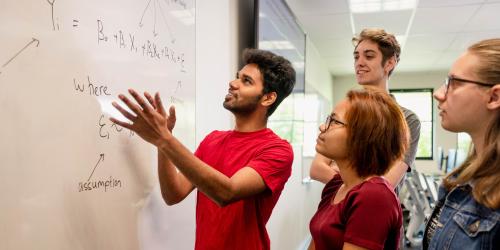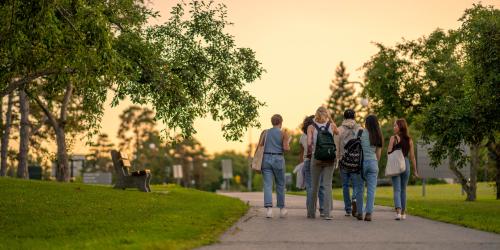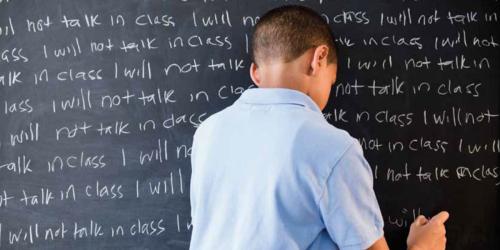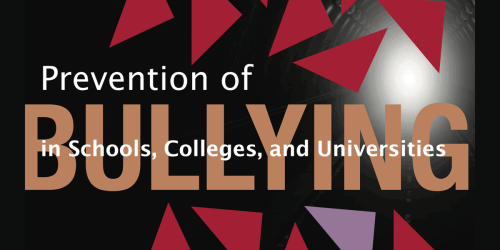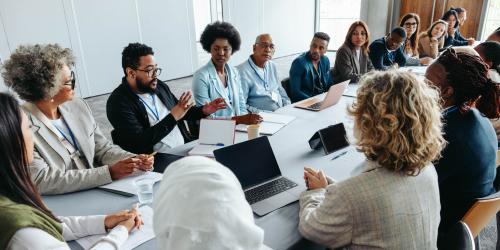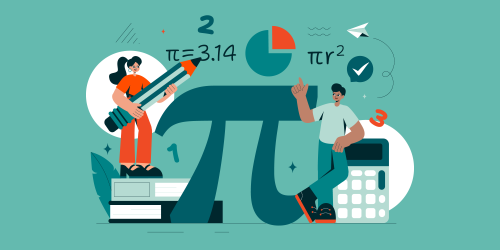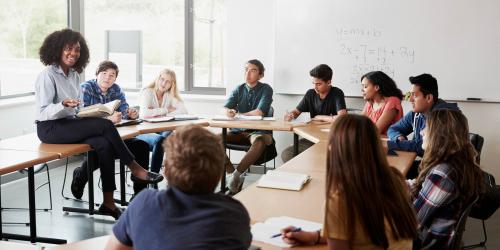Our always-on digital world presents both the greatest challenge and the greatest opportunity to reframe what learning can and should look like today.
The use of research and data in decision making has become a popular mantra in education circles, but putting it into practice presents some real challenges
School leadership is complex and requires wisdom, informed judgment, and choosing among multiple options. Should leaders push for fast results or incremental improvements over time?
Research, data, and resources to help practitioners and policymakers make important decisions about schools and students
A major challenge facing students as they pursue a postsecondary degree is a lack of academic preparedness for college-level math.
According to the National Conference of State Legislatures, 21 states have districts operating on a four-day schedule.
This article in Principal Leadership examines the research on disparities in exclusionary discipline policies and practices.
Bullying presents one of the greatest health risks to children, youth, and young adults in U.S. society.
The following resources, developed by our National Mentoring Center project can help school administrators and staff, as well as their community partners, design and implement effective mentoring services in K-12 school settings.
There’s growing recognition that communities of practice—peer-to-peer learning groups—offer an effective way to work together on a common problem, share strategies, and deepen members’ knowledge.
What truly characterizes a professional learning community? And, more important, How can PLCs improve teacher practice and student learning?
Assessing Mathematical Understanding is a set of mathematics assessments for kindergarten and first-grade students that provides both cumulative data about students’ progress over time and in-depth diagnostic information.
What can district leaders do to create schools that support success for English learners?
The process of selecting a school turnaround provider can seem overwhelming, with so many choices and so little time and information.
Small learning community and small school reform efforts have begun to falter in light of evaluations showing stalled implementation and limited impacts.




